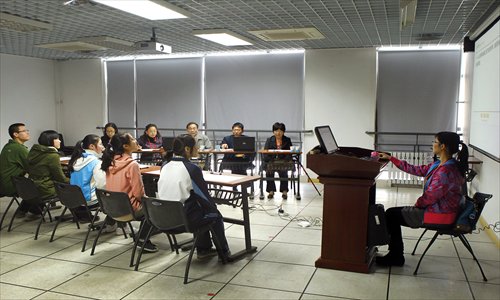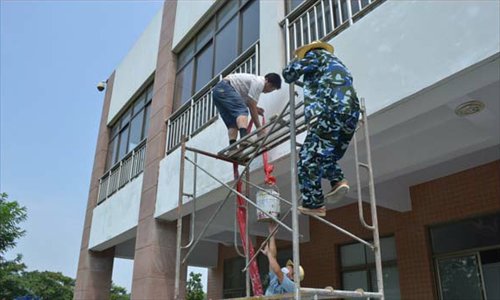HOME >> LAZY PACK
Anti-corruption campaign throws book at China’s universities
Source:Globaltimes.cn Published: 2014-2-12 10:41:00
| Editor's Note |
The ivory towers of universities might seem like a refuge from the woes of the world, and, in China, from rampant corruption. But the recent detention of senior university officials has tarnished the image of the campus. The public is wondering: Are schools places of learning, or are they about turning a buck?
| Cases |
Source: Agencies - Globaltimes.cn
| Corruption Hotbeds |
 Photo: CFP |
Enrollment system Universities are allowed to select no more than five percent of their new undergraduate recruits through the proprietary testing recruitment scheme. "The admissions process has a high incidence of corruption," said Xiong Bingqi, a professor of higher education with Shanghai Jiao Tong University. Xiong said university admission processes have been influenced by administrative power and university officials have used the program for personal gains. [Read more] |
 Photo: nipic.com |
Academic research funds With investment in academic research increasing in China, research fund related corruption is also on the rise at universities due to system flaws and a lack of supervision. In order to stamp out fund corruption and abuse problems, universities in China should build an effective supervision system organized by professional teams to assess every phase of research projects, according to Feng Yujun, a 40-year-old law professor at the Renmin University of China (RUC) in Beijing. [Read more] |
 Photo: anhui.cc Photo: anhui.cc |
Construction projects “Higher education has entered a period of rapid development since China expanded university enrollment in 1998. Corruption became more likely to occur when more money was invested in higher education and the number of construction projects increased,” Zhou Hongyu, former director of Hubei Provincial Department of Education, told the Southern Metropolis Daily. |
| Roots & Solutions |
| Roots | Solutions |
Yang Yusheng, a law professor from the China University of Political Science and Law, said that the centralized administrative management lacks transparency and supervision from the public. Chu Zhaohui, a research fellow from the National Institute of Education Sciences, agreed that more power needed to be given to academics, and less to administrators, in order to curb corruption. |
Universities should promote anti-bureaucracy reforms and let academic experts take charge of the management instead of government-appointed officials, giving the schools more autonomy to make decisions based on their own needs, said Li Qi, a professor of education at the Beijing Normal University. |
| Although universities and colleges have autonomy when choosing construction contractors, purchasing equipment, and enrolling students, the power of approval still remains in the hands of certain officials, who can operate without sufficient laws and supervision to restrict them. |
China should also create or strengthen external university discipline watchdogs to enhance supervision and avoid any cover-ups within the internal management system of universities, said Chu Zhaohui, a research fellow from the National Institute of Education Sciences. |
Web editor: guwei@globaltimes.com.cn
Posted in: Related specials